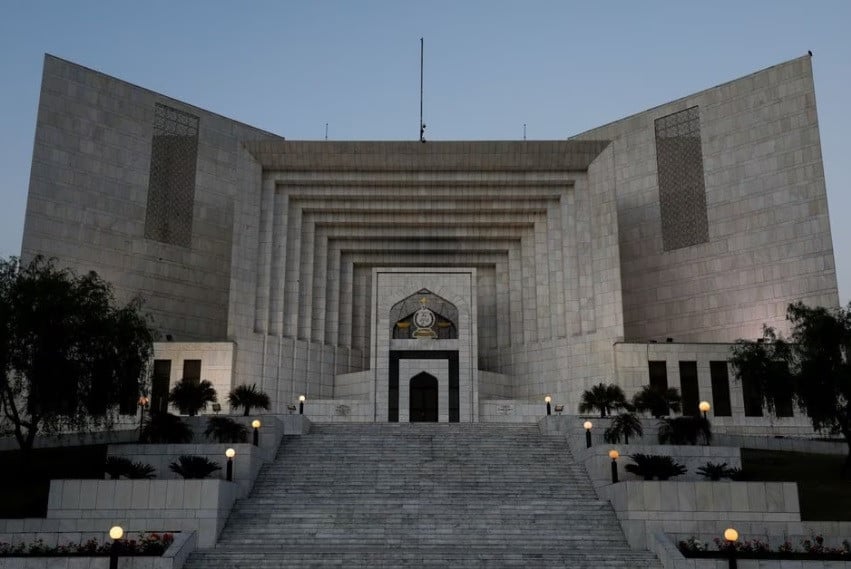On Wednesday, the Supreme Court ordered the Commission of Inquiry on Enforced Disappearances to provide a “comprehensive report” on the subject, including any production orders for individuals who have gone missing with them.

A three-judge panel consisting of Justice Musarrat Hilali, Chief Justice Muhammad Ali Mazhar, and Chief Justice Qazi Faez Isa is now deliberating the matter.
Within ten days, the court has requested that the commission, presided over by Justice (retd) Javed Iqbal, report its findings to the Pakistani attorney general (AGP).
Today, Shaheen read out other court rulings on the subject; when he brought up the Faizabad sit-in case, the CJP asked whether it was relevant.
Following this, Justice Isa instructed the lawyer to merely present information pertaining to the Baloch demonstrators who were subjected to the Islamabad police crackdown. The abduction of journalist Matiullah Jan was another topic he brought up; the CJP wanted to know whether the administration at the time took responsibility.
According to Justice Isa, who expressed his disappointment, “surprised that not a single head rolled as a consequence” when the lawyer claimed that the government had intervened.
A number of political activists have been “picked up” by the government, and Shaheen went on to discuss the abduction of newscaster Imran Riaz Khan, saying that footage of the incident was available.
In response, the judge questioned why they hadn’t just come to the court and said it. “Please don’t begin pleading the causes of powerful individuals who are already well-established, have unlimited resources, and can easily access the courts whenever they desire. Additionally, they avoid legal proceedings when they do not want to. The CJP warned against becoming their spokeswoman.
Next, the head of the Defence of Human Rights, Amina Masood, was summoned to the podium. Her spouse, she said, was “forcefully disappeared” in 2005 while Pervez Musharraf was army dictator, and the chief justice at the time had taken suo motu notice of the matter.
She claimed that the Commission of Inquiry on Enforced Disappearances pronounced her husband deceased in 2013, and she still has no idea when he was apprehended. Additionally, she expressed her want to understand what transpired to her spouse in order to protect herself and her children.
After stating that the Ministry of Defense and the Ministry of the Interior would be involved in the situation, Justice Isa ordered AGP Mansoor Awan to provide a report on the subject.
During the hearing, the chief justice inquired as to whether the AGP was willing to represent the government in stating that no one would be taken unlawfully without following the proper legal procedures. The AGP responded positively.
On “behalf of the Government of Pakistan,” the supreme court requested a written statement from high-ranking government officials, as Justice Isa pointed out.
There is a distinct problem with missing people in Balochistan. The situation is somewhat different in KP, but there is still another terrible component: individuals are being slaughtered because of their race or sect, the CJP noted.
In response to a question about whether the commission was still receiving reports of missing persons, the commission official confirmed that 46 individuals had been found during the month. He also mentioned that a joint investigative team is assembled whenever a case is reported.
The respondents were unhappy with the commission’s responses and the way it handled the case.
After outlining today’s agenda items, the CJP said that the court will only consider matters involving those who are still missing and appointed Faisal Siddiqui as an amicus curiae.
The CJP made reference to the police crackdown on Baloch demonstrators in the capital, saying that the court does not want the state to use tactics like these. “Allow them to protest to the extent that they are able.”










































